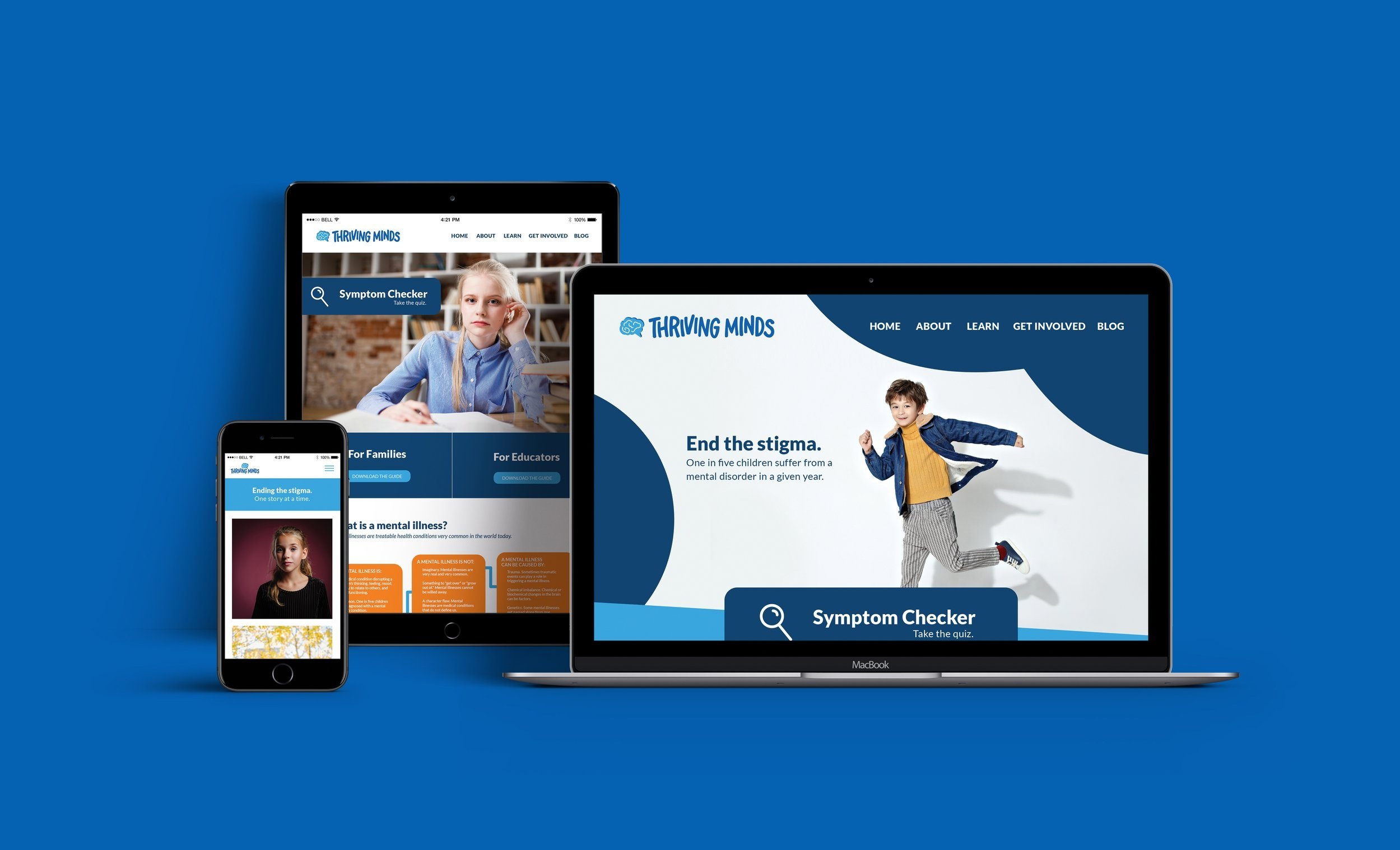
Thriving Minds
Identity Design, Web Design, Social Media, Digital Marketing, Strategy, Print Collateral
OVERVIEW
Up to one in five children suffer from a mental disorder in a given year across the United States. One in five children, ages 3–17 years old, adds up to more than 17 million young people who suffer from disorders that affect their ability to learn, behave, and express their emotions. Early mental health problems merit attention because they disrupt the typical patterns of the brain-developing architecture and impair emerging capacities for learning and relating to others. In many schools currently, there is a lack of resources to meet students' mental health needs. This lack of mental-health professionals and resources emphasizes the need for classroom teachers to be better equipped with the knowledge to aid their students.
RESEARCH
Through preliminary research, it’s been found that giving children access to mental-health resources early in their education can play a key role in mitigating negative consequences later in life. The Substance Abuse and Mental Health Services Administration projects that 12,624 child and adolescent psychologists will be needed to meet demand by 2020, but a supply of only 8,312 is expected. Only 34% of teacher’s believe that they have the necessary skills to meet the needs of their students according to a School Psychology Quarterly study.
SOLUTION
The Thriving Minds initiative was created to raise awareness and educate parents, professionals, and leaders about mental illnesses, specifically in children ages 3–17. Its mission is to break down the stigma behind mental health and make resources for treatment more accessible. These resources will be primarily for the parents and educators of these individuals so that they are better equipped and prepared for any situation. In addition to providing resources, Thriving Minds aims to serve as a community for families and children dealing with these conditions on a daily basis so that they can share their own stories, discover others’ stories and realize that they are not alone in this fight.
IDENTITY DESIGN
SOCIAL MEDIA
DIGITAL MARKETING
The Thriving Minds campaign heavily focuses on the use of social media and programmatic advertisements. This campaign will target our specific audience during peak engagement times throughout the day. The target audience consists of individuals ages 30 to 50, specifically parents. Through tracking web-browsing history and previous searches related to mental health, the campaign will utilize behavioral targeting to reach the target audience.
RESOURCE KIT
The resource kit is comprised of an informative brochure and booklet for the parents of children with mental health conditions and posters for the partner schools. While Thriving Minds encourages talking about mental health openly, we also recognize the privacy of individuals and families seeking help. The envelope containing the resources will subtly reference the brand and logo through patterning while not outright stating the campaign name to respect the privacy of recipients.
WEBSITE




